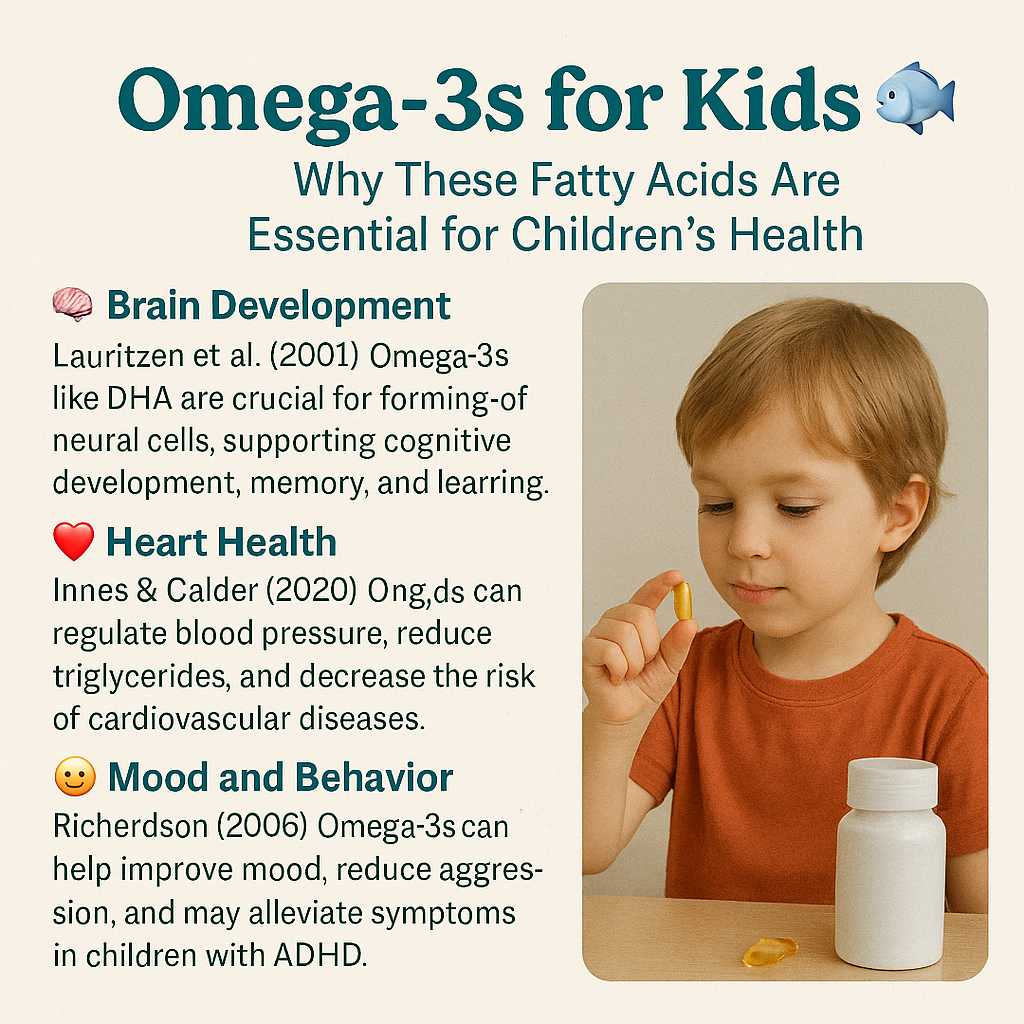
Omega-3s for Kids
Share
Why These Fatty Acids Are Essential for Children’s Health
Omega-3 fatty acids—particularly DHA (docosahexaenoic acid) and EPA (eicosapentaenoic acid)—are among the most important nutrients for a growing child. While often associated with heart health in adults, omega-3s play a critical role in brain development, behavior, and immune support during childhood.
Many kids don’t get enough from diet alone, especially picky eaters or those who don’t like fish. This is where omega-3 supplements for kids can make a big difference—backed by science.
🧠 1. Brain Development and Cognitive Growth
DHA is a primary structural component of the brain and retina. According to Lauritzen et al. (2001), DHA supports the formation of neural cells, and its presence is linked to improved cognitive development, memory, and learning abilities in children. Kids who consumed DHA regularly showed better reading, spelling, and working memory performance.
❤️ 2. Heart and Metabolic Health
While it may seem early to think about heart health, childhood is when lifelong cardiovascular habits form. Innes & Calder (2020) found that omega-3s help regulate blood pressure, reduce triglyceride levels, and support overall cardiovascular function—even in young populations.
Omega-3 supplementation can also reduce systemic inflammation, which is increasingly recognized as a factor in chronic disease development—even starting in youth.
🙂 3. Mood, Behavior, and ADHD
Richardson (2006) showed that children with ADHD who took omega-3 supplements demonstrated improved behavior, reduced aggression, and better mood regulation. EPA, in particular, is believed to help regulate serotonin and dopamine pathways, supporting emotional balance and attention control.
Even for children without ADHD, omega-3s may help with emotional stability and resilience—crucial skills in today’s overstimulating world.
🧃 How to Add Omega-3s to Your Child’s Routine
-
Choose kid-friendly supplements (gummies, softgels, or liquids) with purified DHA/EPA
-
Check for third-party testing to ensure safety
-
Talk to your pediatrician about dosage—most studies use 250–600 mg DHA/day
-
Combine with a balanced diet rich in healthy fats
💙 Omega-3s: Small Capsules, Big Impact
From growing minds to steady moods and strong hearts, omega-3s are truly super nutrients for kids. A simple daily supplement can help fill nutritional gaps and support your child’s long-term well-being—both inside and out.
